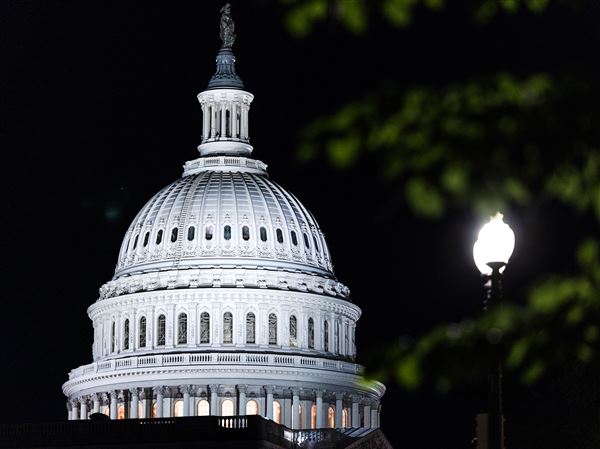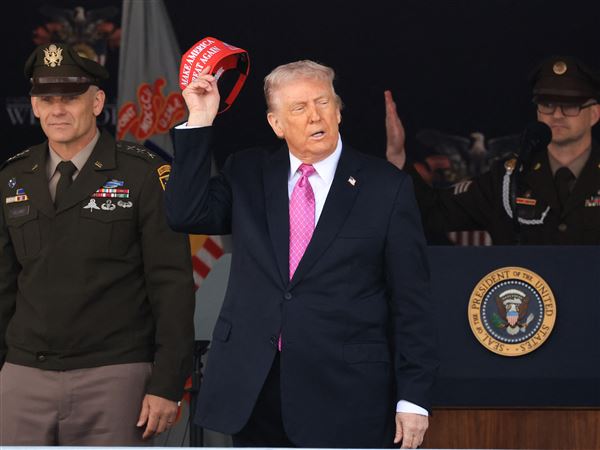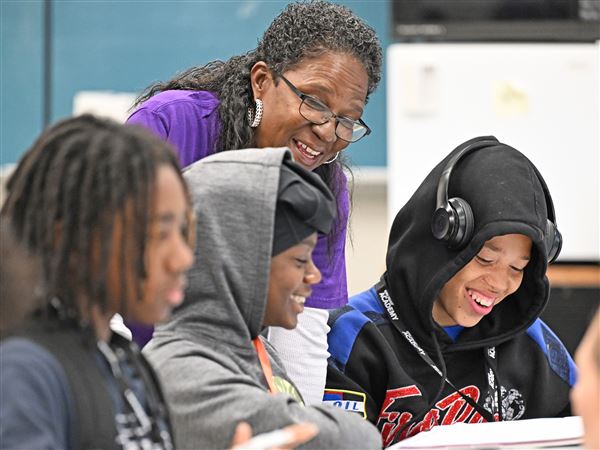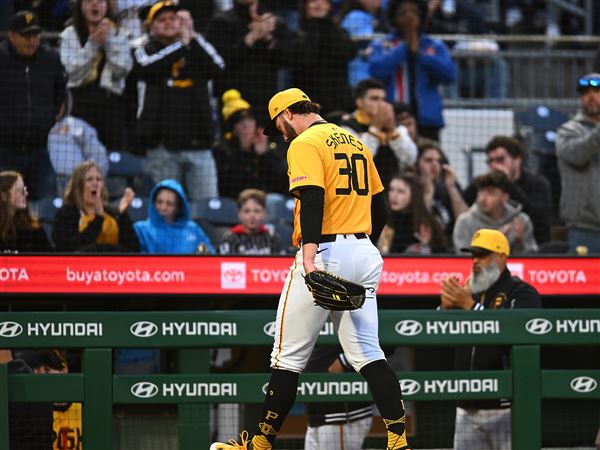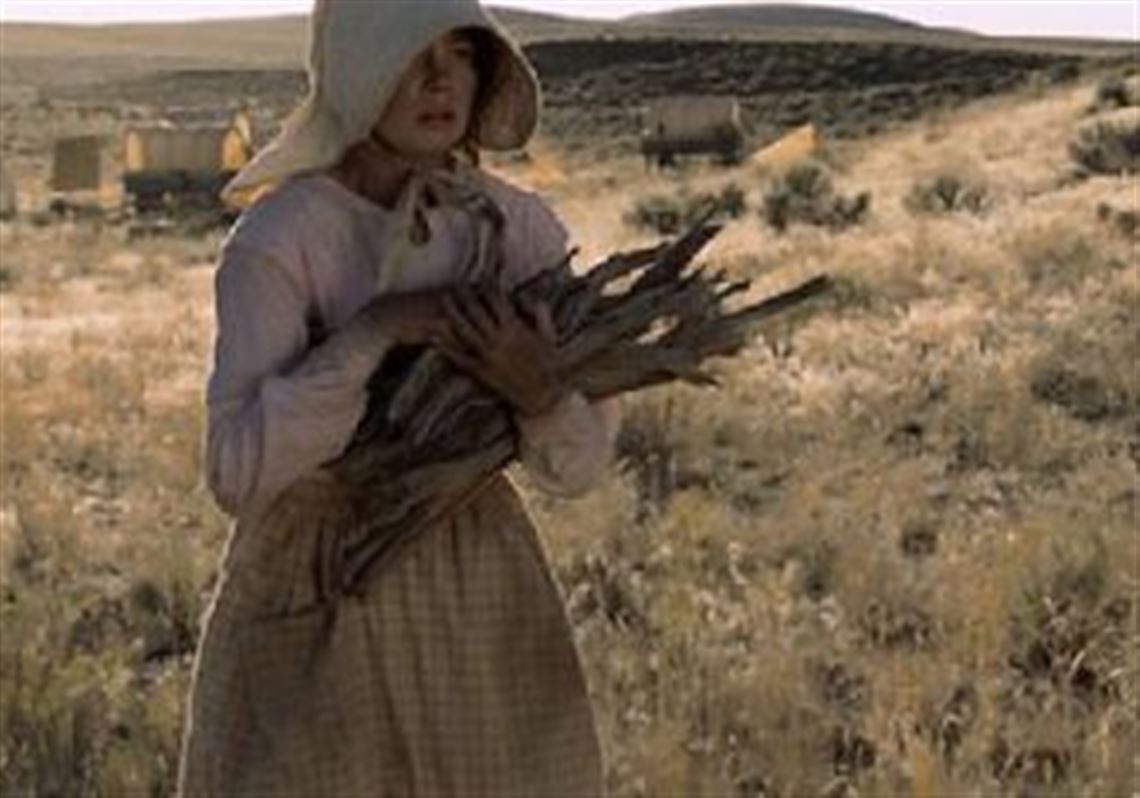Both words of the title -- "Meek's Cutoff" -- are subtly ironic. The grizzled guide in 1845 Oregon is anything but meek. The shortcut he takes through the Cascades cuts off more and less than time.
Director Kelly Reichardt's brooding tale of tribulation is predicated on a poor decision by three pioneer families: the choice of "experienced" mountain man Stephen Meek (Bruce Greenwood) to lead them through the uncharted Pacific Northwest to a newly promised land.
The trek would be bad and hard enough if Meek knew what he was doing. It soon gets harder and becomes evident that he doesn't. Doubts are raised. Smooth-talking Meek reassures them. The three men in the party decide to stick with him. The three women, of course, are never even consulted about that, or anything else.
- Starring: Michelle Williams, Bruce Greenwood, Paul Dano.
- Rating: PG for some mild violence and brief language.
Tension grows between Meek and Emily (Michelle Williams).
"I get the impression you don't like me," he says.
"I don't like where we are," she replies, with diplomatic precision.
"We're not lost -- we're just finding our way," he rejoins, with canny evasion.
They will have soon a bigger confrontation, after Emily spots a wandering Indian. Terrified, she tells the men, who capture him. But what to do with their captive? "Just kill him now" is Meek's instinctive, casually genocidal suggestion. Cooler settler heads prevail: Keep him as a prisoner-guide to get them out of terra incognito. He couldn't do worse than Meek.
If they can trust him. Does he understand what they want him to do? Does HE know where he's going? Is he leading them truly or just on a wild-goose chase, waiting for them to drop off one by one, from hunger and thirst and the elements, as the Kansas Indians did to the Spanish conquistadors? Are his strange rock drawings religious symbols or a clever set of messages for his tribesmen to find and follow -- and slaughter the whites?
Ms. Reichardt's no-nonsense drama, like the pioneers' trek itself, is full of long lingering silences, paced and punctuated by a maddeningly squeaky wagon wheel. (My kingdom for a 3-in-One oil can!)
It's philosophically related to '70s anti-westerns like the great "McCabe & Mrs. Miller," but far less glitzy than gritty -- sans saloons, sheriffs and dueling gunslingers. Like her previous naturalistic films ("River of Grass," "Wendy and Lucy"), this one is gorgeously photographed and replete with painstakingly accurate period detail. (Emily uses a "sewing nail," not "sewing needle" to mend moccasins.)
It's also similarly obsessed with the dispossessed, particularly women, and with the horrible uncertainty of being so. None of these characters is, or can ever be, sure -- of anything. Who's leading, and who's misleading? Given bad options, you make bad decisions.
Ms. Williams is excellent, peeking out from behind her bonnet as if it were a nun's habit, trying hard and rather successfully not to get as unhinged as some of the others. Bruce Greenwood in his too-perfect deerskin suit is marvelously loathsome, hiding behind his own mangy mask of facial hair. Professional stuntman and horse trainer Rod Rondeaux renders the long-suffering Native American with quiet dignity -- suffering indeed long, and Christ-like, for the sins of all the white savages who are violently and inexorably usurping his land.
Jeff Grace's spare, minimalist music offers long tone clusters resembling a windy wail. But the minimalist script has some mysterious holes. The superhuman effort to get their wagons down a steep ravine, for example, is conducted without oxen. The beasts of burden seem to appear, disappear and reappear at will -- without doing their share of the burden. How much heavier would the wagons be if the poor womenfolk rode in them, instead of walking alongside them on foot?
"We've come to a terrible place," Emily concludes, lost in the dust and isolation. High-plains drifters, for sure, in the ambiguous end that won't satisfy everyone.
Go West, young man, advised Horace Greeley, and plenty of 19th-century men and women alike would do so. But even back then, true to their sexual stereotype, the men wouldn't ask for directions.
Opens today at Regent Square Theater.
